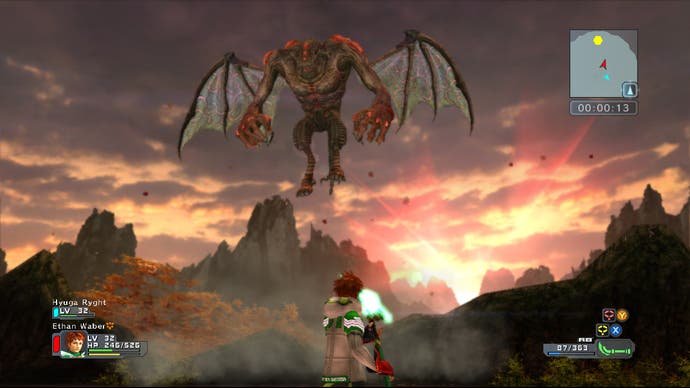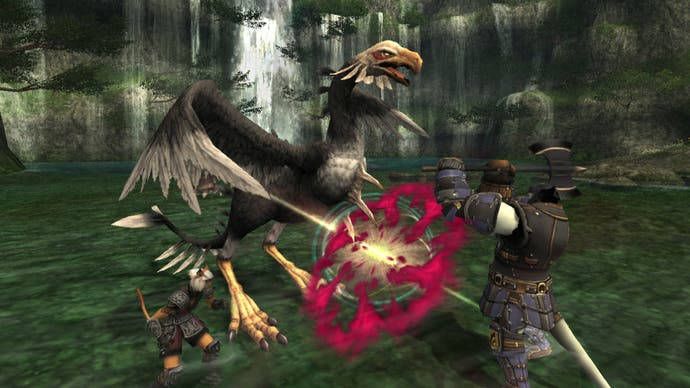Where are all the console MMOs?
Isn't now the time? We ask MMO developers.
The year is 2001, and the game is Phantasy Star Online. To some, it's a vision of the future: sitting in the lounge, running around an online world blatting weird-looking aliens, and then tapping away on a keyboard to exchange quips with friends. To most though, it's a complete faff. You need to muck about with a modem (which sounded rubbish even in 2001), and you need to buy a Dreamcast keyboard. You need to want it, basically. Not enough people do.
Fast-forward to 2007, though, and these concerns are surely behind us. The consoles themselves can do online-this and high-definition-that, broadband has achieved Ron Jeremy levels of penetration, and massively multiplayer games are so firmly established that you could go at them with a nail and the hammer would break. With consoles the way they are, and MMOs the way they are, surely the two should be flooding toward one another like the two sides of the Red Sea when Moses' arms got tired. And yet here we are, still twiddling our thumbs, with a stumpy release list that owes most of its content to the PC's leavings. What gives?
Noobs
Square Enix's Hiromichi Tanaka agrees with us. "With the lack of Internet capabilities and mass storage devices [hard drives], previous generation consoles were simply not designed to support MMORPGs," he says. "But next generation consoles like PlayStation 3 and the Xbox 360 come with large HDDs and are Internet-ready." 'So what's stopping people?' he might've added. Instead he said: "the foundation for development of MMORPGs for these systems has already been laid out."

In there with the building blocks is, of course, Square Enix. Final Fantasy XI allowed PS2 and PC owners to play together on the same server. And although it took a while for the 2002 Japanese game to reach Western markets, its effect was strong (particularly in the US, where the PS2 HDD add-on launched, increasing its audience), and it still survives today. Tanaka's employers have put their money where their mouth is with an Xbox 360 version already.
The Xbox business was the first console effort to benefit from the increasing number of high-speed broadband connections, first on Xbox and then on Xbox 360. Modems belong in museums nowadays, and 512Kbps connections make our 8MB, 22-quid-a-month ADSL laugh. The lacklustre and sporadic support of online console gaming has changed to reflect this throughout the industry. Even Nintendo talks in terms of online strategy these days. It never used to.

The foundation, as Tanaka says, is definitely there, and everyone we speak to agrees on this point. "We now have the Xbox 360 and other systems with the capacity to run these games, thanks to both the technical power they possess and the streamlined online services they've introduced," says Funcom's Erling Ellingsen, one of the people involved with upcoming MMO Age of Conan. "Yes, absolutely," adds Dirk Hassinger, vice president of business development at Two Worlds publisher Zuxxez. "Just about everyone has [what PSO on the Dreamcast had] now, and with the increased online functionality of the new consoles, this generation's multiplayer will be increasingly dominated by MMO gameplay - or at least multiplayer modes that involve some MMO functionality." Funcom's Ellingsen concludes on virtually the same point: "It's the perfect time for these worlds to collide, and I think console MMOs will become more and more common in the future."

